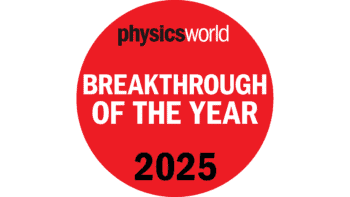Scientists from BioForce Nanosciences, Iowa State University and Des Moines University in the US have coated a silicon chip with antibodies to make a device that can detect viruses when used in conjunction with an atomic force microscope (AFM). The device, dubbed the “ViriChip”, could help save the lives of heart transplant patients by enabling doctors to find out quickly whether a donor heart is infected (S Nettikadan et al. 2004 Nanotechnology 15 383)
Henderson and colleagues tested their atomic force microscopy-immunosensor assay device on six group-B “coxsackieviruses”. The researchers applied just a microlitre of sample to the chip: if a particular virus was present in the sample it attached to a specific antibody region. AFM was then able to detect the presence of the virus at that region, indicating which type of virus it was.
The read-out does not require labelling or molecular or biological amplification and the researchers found it was easy to distinguish virus particles from debris. “The technique is currently being used by researchers and we hope it will be available for doctors and hospital pathology labs in the next two years,” said Eric Henderson, chief scientist at BioForce Nanosciences.
“This is the first time that scientists have been able to apply droplets of an antibody routinely on the micron to nanometre scale to a surface of a material like a silicon chip,” said Henderson. “In principle you can fit thousands of different antibodies on one chip and use it to test for thousands of different viral infections simultaneously, using just one sample from a patient. This means patients will not have to provide large blood samples, just a single drop will be sufficient.”
This story first appeared on nanotechweb.org



